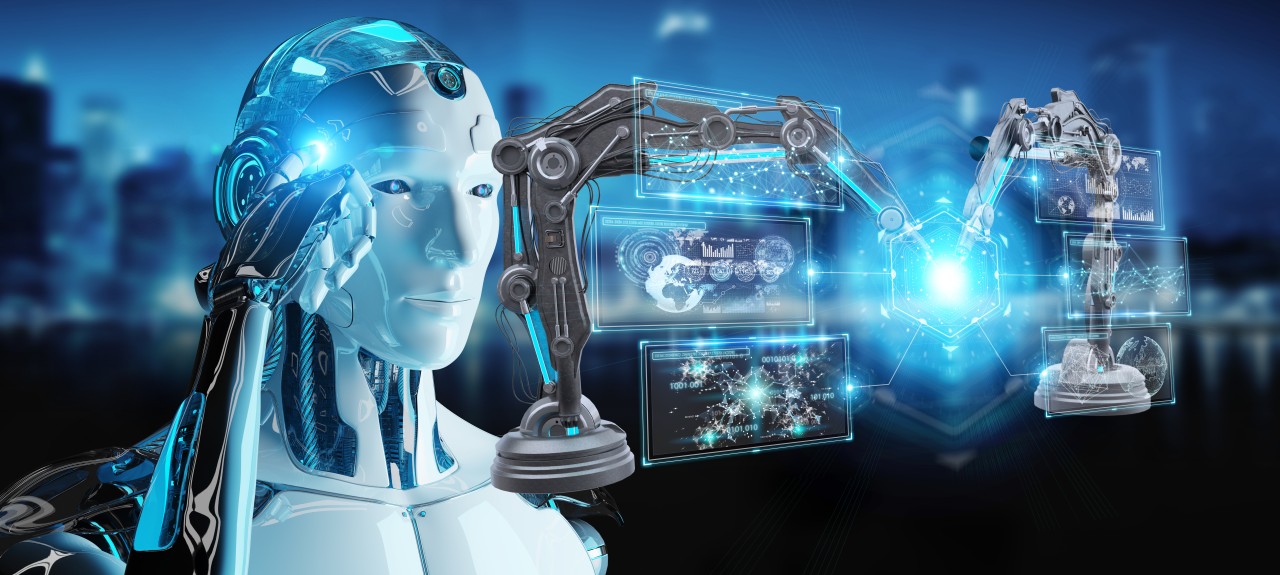How Artificial Intelligence is Changing ICT
Artificial Intelligence (AI) is transforming the Information and Communication Technology (ICT) landscape, revolutionizing how businesses, governments, and individuals operate. From automating routine tasks to enabling advanced decision-making, AI is reshaping the future of ICT. Here’s how AI is driving innovation in this sector.
1. Enhancing Network Management
AI is making network management more efficient and reliable.
- How AI Helps:
- Predictive Maintenance: AI predicts network failures before they occur, minimizing downtime.
- Traffic Optimization: AI algorithms manage network traffic to prevent congestion and improve speed.
- Example:
- Telecom companies use AI to detect and resolve network issues automatically.
2. Improving Cybersecurity
AI strengthens cybersecurity by identifying and mitigating threats in real time.
- AI in Cybersecurity:
- Threat Detection: AI analyzes patterns to detect anomalies and potential cyberattacks.
- Incident Response: AI-powered systems respond to threats faster than humans.
- Fraud Prevention: AI identifies suspicious activities in financial transactions.
- Example:
- AI tools like Darktrace and IBM Watson for Cybersecurity provide advanced threat intelligence.
3. Revolutionizing Customer Support
AI-powered tools are transforming how businesses interact with customers.
- How AI Improves Support:
- Chatbots: Provide instant responses to customer queries 24/7.
- Sentiment Analysis: AI understands customer emotions to offer personalized solutions.
- Virtual Assistants: Automate repetitive tasks like ticket management and FAQs.
- Example:
- Companies use AI chatbots like ChatGPT to handle customer inquiries efficiently.
4. Driving Data Analytics
AI enables businesses to extract valuable insights from large datasets.
- AI in Data Analytics:
- Predictive Analytics: AI forecasts trends and customer behaviors.
- Real-Time Analytics: Processes data instantly for quick decision-making.
- Data Visualization: AI creates easy-to-understand visuals for complex datasets.
- Example:
- AI tools like Tableau and Microsoft Power BI integrate with ICT systems for advanced analytics.
5. Automating Routine Tasks
AI automates repetitive tasks, freeing up human resources for strategic activities.
- Applications in ICT:
- System Monitoring: AI tools monitor servers and devices for performance issues.
- IT Support: AI automates software updates, backups, and troubleshooting.
- Example:
- AI-driven automation platforms like UiPath streamline IT workflows.
6. Enhancing Cloud Computing
AI is optimizing cloud services to make them smarter and more efficient.
- AI in the Cloud:
- Resource Management: AI allocates cloud resources dynamically based on demand.
- Cost Optimization: AI identifies cost-saving opportunities in cloud usage.
- Security: AI strengthens cloud security by detecting vulnerabilities.
- Example:
- Google Cloud and AWS use AI to enhance cloud service performance.
7. Enabling Smarter IoT Systems
AI is the backbone of smart Internet of Things (IoT) systems.
- AI and IoT Integration:
- Predictive Maintenance: AI predicts when IoT devices need repairs.
- Energy Efficiency: AI optimizes energy consumption in smart devices.
- Automation: AI enables IoT systems to operate autonomously.
- Example:
- AI-driven smart homes use IoT sensors to adjust lighting and temperature automatically.
8. Transforming Education and Training
AI is revolutionizing ICT education and skill development.
- AI in Learning:
- Personalized Learning: AI adapts content to individual learning speeds and styles.
- Virtual Labs: AI-powered simulations provide hands-on ICT training.
- Assessment: AI evaluates performance and provides actionable feedback.
- Example:
- Platforms like Coursera and Udemy use AI to recommend courses based on user preferences.
9. Enhancing Decision-Making
AI aids in making data-driven decisions faster and more accurately.
- AI in Decision-Making:
- Scenario Analysis: AI simulates outcomes to support strategic planning.
- Real-Time Alerts: AI provides instant updates for critical decisions.
- Risk Assessment: AI evaluates risks and suggests mitigation strategies.
- Example:
- Businesses use AI tools like IBM Watson for decision-making in ICT projects.
10. Paving the Way for Emerging Technologies
AI serves as the foundation for other groundbreaking technologies.
- Examples of AI-Powered Innovations:
- 5G Networks: AI optimizes the deployment and management of 5G infrastructure.
- Blockchain: AI enhances blockchain security and scalability.
- Quantum Computing: AI accelerates the development of quantum algorithms.
Challenges of AI in ICT
Despite its benefits, AI adoption in ICT comes with challenges:
- Ethical Concerns: Bias in AI algorithms and privacy issues.
- High Costs: Implementing AI systems can be expensive.
- Skill Gap: A shortage of professionals skilled in AI technologies.
Conclusion
Artificial Intelligence is a game-changer for ICT, driving innovation and efficiency across industries. By automating processes, enhancing cybersecurity, and enabling smarter decision-making, AI is reshaping the ICT landscape. Businesses that embrace AI will gain a competitive edge and be better prepared for the future.






